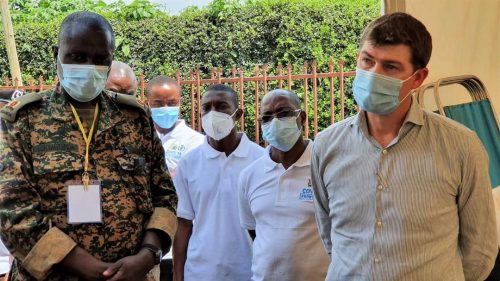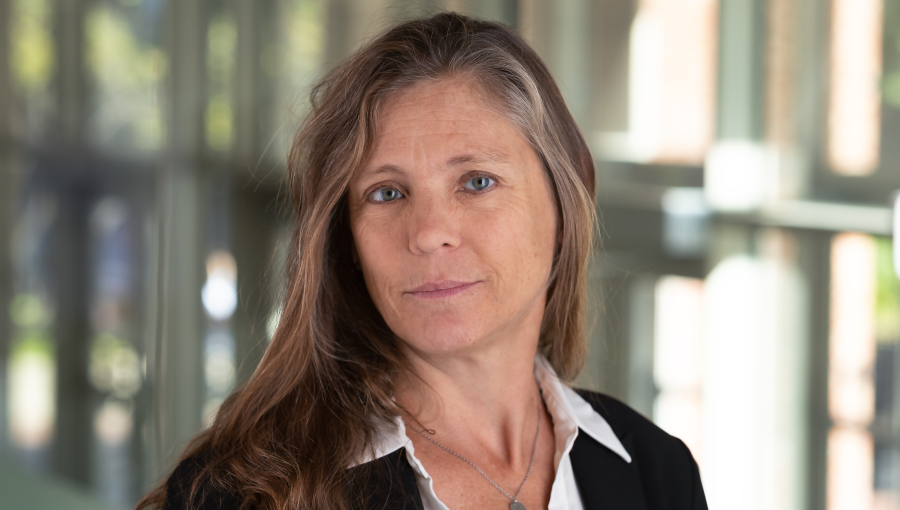Alumni Ryan Anderson and Michela Cristiani on Nobel Peace Prize to World Food Programme
On November 19, John Cabot University hosted an online roundtable on the 2020 Nobel Peace Prize awarded to the UN Agency of the World Food Programme to celebrate the effort of two JCU alumni working in the organization. The event, organized by the JCU Alumni Association and the Guarini Institute for Public Affairs, was moderated by the Permanent Secretariat of the World Summit Nobel Peace Laureates, Livia Malcangio.
Two JCU alumni, Ryan Anderson (class of 2001), Country Director of the WFP Uganda, and Michela Cristiani (class of 2014), Program Policy Officer at WFP participated in the round table together with JCU Professor Silvia Scarpa. JCU President Franco Pavoncello gave a welcome and introduced the participants.
World Food Programme and internship opportunities
Anderson discussed his experience getting an internship at the WFP UN Agency while he was still an undergraduate student at JCU. He started working for the organization in 2002, a time that he recalls with a great sense of pride. “Staff working with me at that time were enthusiastic about bringing in young people,” said Anderson.
Cristiani highlighted the importance of the internship services that universities offer to their undergraduate and graduate students. She received an email from the JCU Career Services offering an internship position at the WFP after she had already enrolled in another program. Cristiani decided to apply and take the opportunity to work in such a stimulating environment, where she met many other JCU alumni.
The World Food Programme
Malcangio explained that the WFP ensures food supplies in places of the world where individuals’ lives are endangered by the outbreak of civil conflicts, natural catastrophes, or epidemics, causing the death of a significant number of people. She reported that the effort of the WFP and of the people involved in the organization revolves around the continuous innovation of their food supply chains and the collection of increasing amounts of funds to secure their work.
Anderson commented that the Nobel Peace Prize highlights the importance of food security within communities, regions, and countries around the world. “It’s great that the committee brought this issue to the center of the world’s attention,” said Anderson. “It was a reminder that despite the progress we have made, we still have a long way to go regarding fundraising,” he added.
According to Professor Silvia Scarpa, who teaches International Migration and Human Rights at JCU, there is a connection between the issue of food security and the emergence of contemporary slavery. She mentioned that especially when dealing with international organizations, it’s important to have a coordinated set of actions. For example, the WFP offers programs aimed at feeding children in schools or increasing awareness on gender issues.
Anderson’s WFP experience

JCU Alumnus Ryan Anderson (Class of 2001)
The speaker discussed his first assignment with the WFP in Northern Sri Lanka. He was assigned to the administrative capital of the rebel group controlling the northern part of the country. Anderson recalled his time in Sri Lanka as a very difficult one, especially because the country was a combat area, where an ethnic conflict caused its polarization. When the conflict reached its highest level, the tsunami hit. He underlined that he went from being assigned a small operation related to feeding school children to facing a huge local emergency. “In that operation, I saw all the strength of the WFP and, once again, I felt proud of being part of it,” said Anderson.
Cristiani’s WFP experience
Cristiani reported that even though the WFP works hard to cope with inequalities regarding world hunger, its contribution might not be enough. For instance, the WFP in Uganda is struggling to meet the nutrition needs of refugees. However, “there is a value to understanding that we are not just providing food as an essential need but we are also trying to provide opportunities to the populations that we assist, especially in the specific context of Uganda,” said Cristiani. She mentioned the fact that by providing food supplies, the WFP tries to create a feeling of hope among people who run away from their home countries and don’t know when they will be able to go back.

JCU Alumna Michela Cristiani (Class of 2014)
Ultimately, the JCU alumna outlined the effort of Uganda WFP offices to supply food during the COVID-19 pandemic, despite many changes in the distribution and gathering policies. Cristiani reported that when the virus was proclaimed a level three emergency worldwide for the WFP, she was sent to the Western part of Uganda for two months. Here, together with her colleagues, she had to implement new safety solutions for food packaging, so that refugees could come and pick-up food without spending time interacting with staff. “A lot has been done because the WFP acted quite quickly. Given the actual pandemic situation, we are now still working really hard in that direction,” concluded Cristiani.





